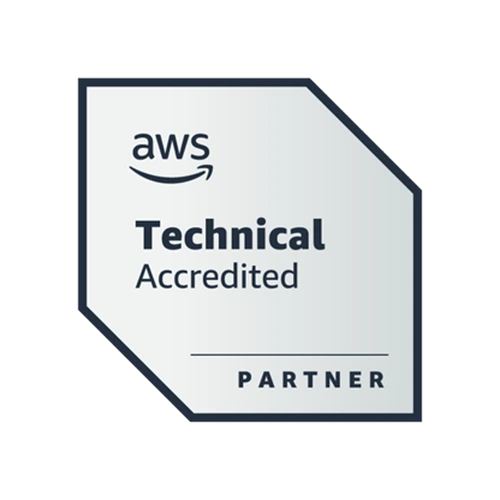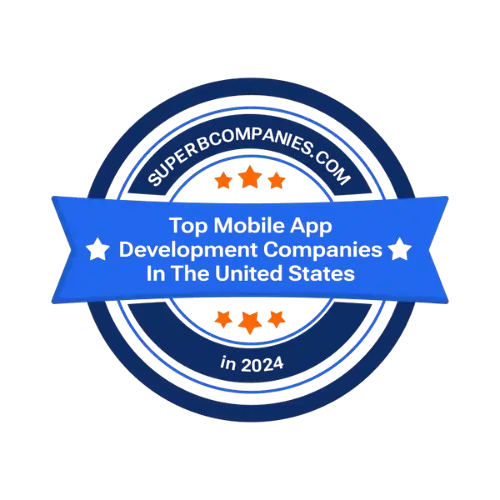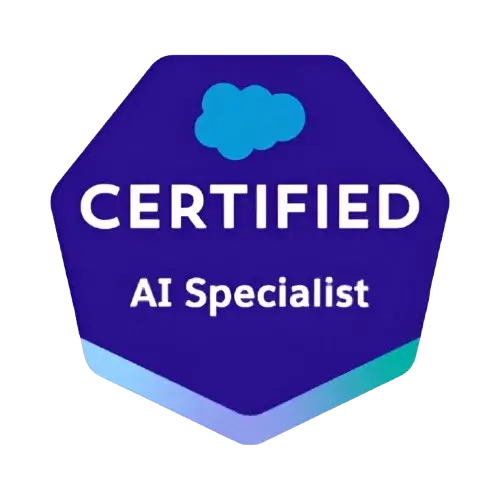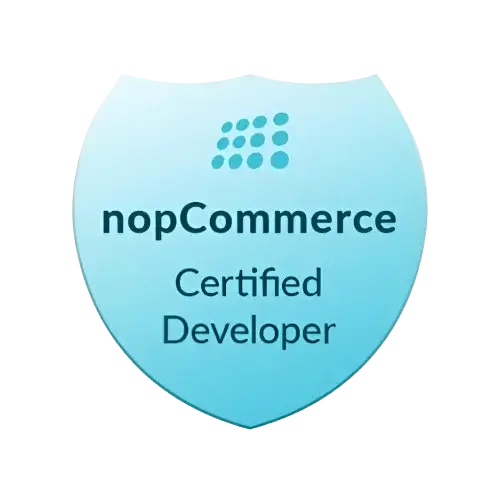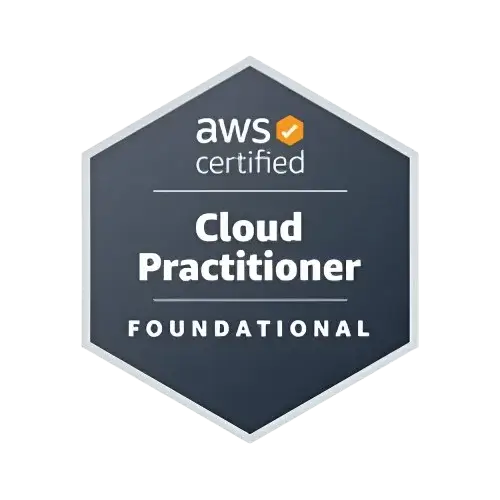The automotive industry is leading the way in exciting changes thanks to advanced Automotive Software Development. From smart driver assistance systems (ADAS) to self-driving technologies, new software is changing how vehicles work making them safer, more efficient, and providing a better driving experience that everyone can enjoy.
We develop software solutions for the automotive industry that push the boundaries of innovation and deliver cutting-edge technologies for modern vehicles. In this guide, you will learn more about the critical role software plays in shaping the future of the automotive industry, our comprehensive services and why we excel in the automotive industry.
Contact Us Now !!!We offer customized end-to-end software solutions for the automotive industry, tailored to the needs of automotive companies. Our services focus on innovation, safety and customer satisfaction and utilize the latest technologies to achieve a competitive advantage.
Our software developers for the automotive industry create solutions that optimize vehicle systems such as engine performance, braking and stability. These systems improve fuel efficiency, reduce power consumption and improve vehicle handling. Connectivity enables modern vehicles to interact with their environment, allowing for features like remote diagnostics and fleet management.
Our solutions for electric vehicles optimize battery management systems, regenerative braking and charging cycles. These enhancements increase range and improve energy consumption. Electric vehicle (EV) adoption is accelerating, driving the need for advanced powertrain and battery management software.
We design interactive UI/UX for infotainment systems that offer seamless smartphone integration, voice control and real-time navigation. These features enhance the user experience and make driving intuitive and enjoyable.
We offer cloud-based telematics systems for real-time vehicle tracking, remote diagnostics and fleet management. These solutions ensure smooth operations and reduce operating costs.
Our ADAS development focuses on autonomous driving systems and safety functions such as adaptive cruise control, collision avoidance and lane correction. Artificial intelligence (AI) and machine learning (ML) are being integrated into automotive software to enhance safety and performance through data analysis. Data analytics in vehicles transforms the driving experience by enabling predictive maintenance and tailored user experiences. These systems use sensor data to increase road safety.
We protect connected vehicles from security breaches with robust cybersecurity solutions. Our software ensures secure communication and compliance with industry standards. Automotive software developers should incorporate a secure software development lifecycle to strengthen their products against cyber attacks. Automotive software can be targeted by cybercriminals, leading to data breaches and endangering passenger safety.
Our embedded systems development improves vehicle components such as ECUs and powertrain systems. We focus on real-time firmware and system automation for maximum efficiency.
Automotive software plays a critical role in improving the efficiency, performance and operational management of vehicles. By making real-time adjustments to engine performance and fuel injection systems, software helps to reduce fuel consumption and emissions while improving vehicle responsiveness and durability.
Beyond the vehicle itself, software solutions such as ERP systems for the automotive industry streamline manufacturing and distribution processes. They manage inventory, production schedules, sales tracking and financial operations, increasing efficiency and transparency throughout the supply chain.
Other tools, such as transportation management systems (TMS) and warehouse management systems (WMS), provide additional support to the automotive industry ecosystem. TMS platforms handle route planning, fleet tracking and freight management, while WMS optimize warehousing, picking and order fulfillment. In addition, route optimization software and manufacturing execution systems (MES) improve delivery logistics and coordination in production, ensuring cost efficiency and on-time production.
Modern vehicles are equipped with advanced driver assistance systems (ADAS) based on real-time software and sensor data. These systems support functions such as automatic emergency braking, lane departure warning and collision avoidance, drastically improving road safety.
ADAS software processes data from radar, LiDAR and camera systems much faster than human reaction time, helping to avoid accidents and reduce driver fatigue. This technology is the basis for the development of semi-autonomous and fully autonomous driving.
Automotive software also enables predictive maintenance and remote diagnostics. With the help of telematics and onboard diagnostics (OBD), vehicles can monitor the condition of components, detect problems at an early stage and warn the driver before a breakdown occurs.
This proactive approach not only reduces downtime and unexpected breakdowns but also helps to reduce maintenance costs by addressing problems before they escalate. Fleet operators benefit by extending vehicle life and ensuring operational continuity.
Software is at the heart of connected and autonomous vehicles. Autonomous systems rely on complex software for perception, path planning and decision making. These systems are integrated with cloud platforms, sensors and real-time map data to enable safe navigation.
Over-the-air (OTA) updates further support connected vehicles by remotely delivering new features, system patches and security updates. This keeps vehicles up to date without the need to visit a service center, increasing efficiency and safety.
Automotive Software improves the driver and passenger experience through intelligent interfaces and connected infotainment systems. Features such as voice control, personalized settings, integrated navigation and adaptive user interfaces provide an intuitive and engaging driving experience.
Seamless smartphone integration via Apple CarPlay, Android Auto and proprietary platforms allows users to stay connected, entertained and in control an important contribution to brand loyalty and customer satisfaction.
Software development for the automotive industry must adhere to strict industry regulations and standards in terms of safety, emissions and cybersecurity. Standards such as ISO 26262 for functional safety and AUTOSAR for architecture design help developers to create reliable systems.
Compliance with these standards ensures that vehicles meet regulatory requirements in global markets and helps manufacturers avoid costly recalls or delays by authorities. By adhering to these standards, developers ensure quality, reduce risk and shorten time to market.

Automotive Software Development is the backbone of today’s vehicles. With over 100 million lines of code in modern vehicles more than in a fighter jet software controls everything from electronic control units (ECUs) to infotainment systems. It controls self-driving cars, optimizes fuel efficiency and ensures functional safety. The software development process in the automotive industry integrates embedded systems, telematics systems and predictive analytics to create smarter, safer and more efficient vehicles. Automotive software enables vehicles to collect and analyze vast amounts of data to improve user experiences.
The future of automotive software revolves around connectivity, autonomy and efficiency. Software-defined vehicles rely on continuous updates to improve functionality, close security gaps and increase operational efficiency. This evolution is critical for car manufacturers, car dealerships and fleet management to ensure vehicles remain competitive in a rapidly evolving industry.
Are you ready to transform your vehicles with automotive software solutions?
Hear from our clients
Differenz have provided London Sport excellent web development services across three products. We have been delighted with all areas of their work; expertise, technical knowledge and account management. We have asked Fazil and his team to take on the rebuild of an existing product, the ongoing development of another and build another from scratch – on all they have exceeded expectations.
The team have worked in a few projects for me: some from scratch and some fixing the work of other developers. They’ve always been responsive, professional and done a great job. I continue to use them for all of my website and app development tasks.
Differenz have been providing ongoing app and web development services to us for the last two years. They have great expertise and we have always found their work of the highest quality, even when handling extremely complex requirements. They also provide great customer service, with our account manager always on hand to talk through requirements and issues. Highly recommended!
We analyze your needs and define software goals, new technologies and compliance requirements.
Our team designs a framework for data flow, module interactions and security protocols using model-based simulations.
We use programming languages such as C and C++ and write optimized code for real-time performance.
Hardware-in-the-loop (HiL) testing ensures functional safety and adaptability under real-world conditions.
We integrate the software into the control units and provide OTA updates for continuous improvements.
Our solutions enable fast connectivity for real-time traffic information, hazard warnings and autonomous driving technologies.
We use digital twins to simulate vehicle systems to enable predictive maintenance and performance optimization.
Blockchain ensures secure data transactions, tamper-proof records and smart contracts for automotive companies.
Our AI-driven HMI systems offer voice, gesture and AR controls that improve user experience and situational awareness.
AI-powered fleet tracking and predictive maintenance optimize dealership operations and reduce costs.
OTA updates deliver new features, security patches and performance improvements without service visits.
Edge computing processes sensor data on board, reduces latency and improves autonomous systems.
Our sensor fusion systems integrate data for precise decisions in self-driving cars.
We use cutting-edge technologies to deliver solutions that meet the needs of the automotive industry:


